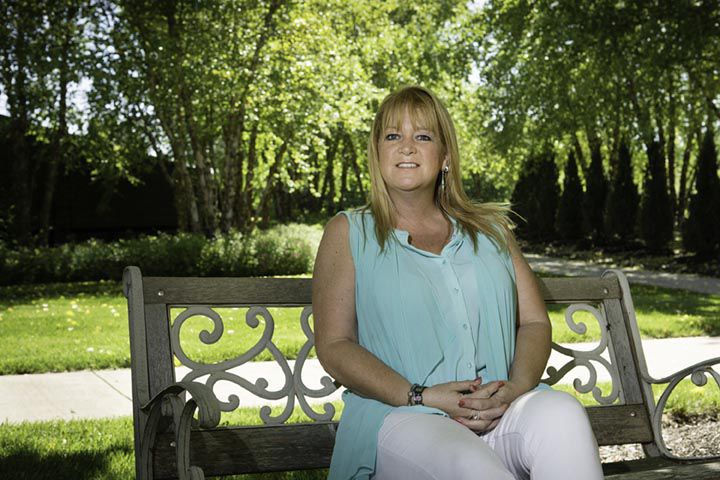At the age of 15, Theresa Flores was a happy all-American girl next door from a good Irish Catholic family living in an upper-middle class suburb of Detroit, Mich. Unfortunately, the carefree life she knew would soon be transformed into a living nightmare from which she found no escape for more than two years.
“I wasn’t abused, I wasn’t promiscuous, I didn’t do drugs, but I was targeted by a group of older guys from my high school, and was basically groomed by one of them,” she recalled. He gave her special attention, which soon led her to trust him.
But one day a car ride home from school had tragic consequences: he raped her. Soon after she discovered that the other boys had taken pictures, which they threatened to distribute if she didn’t comply with their orders. Her enslavement had begun.
For the next two years, Flores attended school during the day alongside her abusers and continued to live at home in an attempt to keep her family safe — on the exterior, a seemingly “normal” existence. But nights were a different story. She would be called into “service” late most nights and trafficked to men in their 20s and 30s while her unknowing family slept.
“Faith is the only thing that saved me while I was being trafficked; my strong faith is what kept me alive,” said Flores, who is Catholic. “My faith is what I leaned on.”
Today, more than 20 years later, Flores is a licensed social worker, best-selling author of “Sacred Bath” and “The Slave Across the Street,” and founder of SOAP (Save Our Adolescents from Prostitution). She travels across the U.S. sharing her story of survival, activism and faith, and will be among the dozens of speakers at the 2015 Los Angeles Religious Education Congress, March 12-15 in Anaheim.
In her first workshop presentation, “The Slave Across the Street: Human Trafficking of American Teens” (#3-08, which will be presented 3 p.m. to 4:30 p.m. on Friday, March 13), Flores will share further details about her own powerful story, and address the basics of domestic human trafficking — including common clues that somebody is being “trafficked” into forced sexual servitude — and the inexorable links between modern-day slavery, prostitution and pornography.
“Human trafficking is the second biggest crime in the United States,” Flores told The Tidings. Yet, she added, too many people remain unaware of its prevalence, a fact that indirectly contributes to its continued proliferation in our own backyards.
“When most people hear [the term] human trafficking, they think ‘overseas’ automatically, but what I concentrate on is domestic minor sex trafficking, and that means American kids under the age of 18 being trafficked [into prostitution],” she explained. This is typically referred to as teen or child prostitution, continued Flores, noting that in her presentation she will explain how there is truly no distinction between underage prostitution and domestic sex trafficking.
In “How to Break the Chains of Slavery in the United States” (#5-11, presented 1 p.m. to 2:30 p.m., Saturday, March 14), Flores will discuss various ways people — including students, teachers, parents, clergy and others — can help raise awareness and work together to curtail the growing phenomenon of trafficking. Hands-on activities can include prayer, letter writing or donating time and effort to charitable organizations such as SOAP, which Flores founded more than five years ago.
The core mission of SOAP is twofold: to help rescue victims being trafficked at high-risk motels/hotels by freely distributing bars of soap, each individually wrapped with a red band emblazoned with the National Human Trafficking Hotline phone number, 1 (888) 373-7888; and educating the managers and owners of these establishments about how to identify and report possible sex trafficking incidents.
To date, SOAP has given away half a million bars of soap across 13 different states, a feat made possible thanks to donations from individuals, churches and businesses, and the hands-on assistance of thousands of volunteers.
“It was really my mission from God to find my voice again and get out there and help people, and so that’s what I’ve devoted myself to for the last eight years,” said Flores. “It’s amazing how God has led me through this my whole life.”
To learn more about domestic human trafficking in the United States, about SOAP, and/or about Theresa Flores and her mission, go to www.traffickfree.com. Digital and hard copies of her books can be purchased online via Amazon.com.

